The problems of fossil fuels
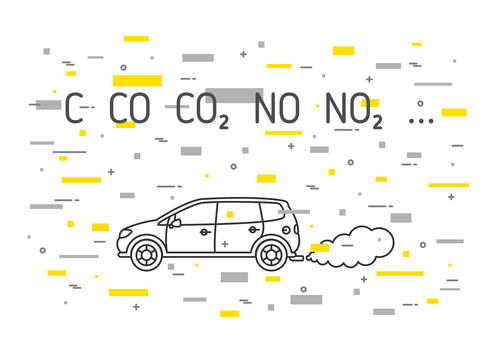 Petrol and diesel are both made from oil - a black, gloopy substance formed from the fossilised remains of animal and plant life that lived and died under our oceans hundreds of millions of years ago. Oil contains compounds of carbon and when it’s burned in a car’s engine, along with being an energy source, it produces carbon dioxide (CO2), the most abundant ‘greenhouse gas’ in our planet’s atmosphere. The concentration of CO2 in our planet’s atmosphere has been increasing rapidly in recent years, and now stands at over 400 parts per million, while in 1800, it was at just below 283 ppm. The increased level of CO2 in our atmosphere, brought about by increased burning of fossil fuels, is now agreed by almost all climate scientists to be the cause of rapidly accelerating climate change and rising global average temperatures.
Petrol and diesel are both made from oil - a black, gloopy substance formed from the fossilised remains of animal and plant life that lived and died under our oceans hundreds of millions of years ago. Oil contains compounds of carbon and when it’s burned in a car’s engine, along with being an energy source, it produces carbon dioxide (CO2), the most abundant ‘greenhouse gas’ in our planet’s atmosphere. The concentration of CO2 in our planet’s atmosphere has been increasing rapidly in recent years, and now stands at over 400 parts per million, while in 1800, it was at just below 283 ppm. The increased level of CO2 in our atmosphere, brought about by increased burning of fossil fuels, is now agreed by almost all climate scientists to be the cause of rapidly accelerating climate change and rising global average temperatures.
But what’s also now becoming much clearer is that diesel cars, which in the 2000s were hailed as more environmentally friendly than their petrol counterparts because they produce less CO2, also produce far more NOx - oxides of nitrogen. These include nitrous oxide (N2O), or ‘laughing gas’, which is almost 300 times more powerful a greenhouse gas than CO2; nitrogen dioxide (NO2), which is a major pollutant and forms the brownish coloured component of smog; and nitric oxide (NO), which readily oxidises in the atmosphere to become nitrogen dioxide.
New rules to control pollutants in emissions have led to cleaner, more efficient engines. But as the VW emissions scandal of 2015 (or ‘Dieselgate’) showed, in some cases, new and supposedly greener cars are actually only cleaner when undergoing test conditions. Wider analysis of vehicle emissions has shown that many cars from a range of manufacturers actually exceed emissions limits by a large margin when being driven in real life, rather than under test conditions.
So it makes sense to look to alternatives to petrol and diesel powered vehicles. And fortunately, alternatives already exist in the form of all-electric and electric-petrol hybrid vehicles. There are around 975,000 fully electric on the UK’s roads today. It is predicted that by 2030, this will have increased dramatically to 6.4 million.
But all-electric cars run on big batteries and of course those batteries need charging. And whilst hybrids use batteries to provide some of the power, they still use a petrol engine to provide some, or in some cases most of the power to drive the car. So just exactly how clean are they as alternatives to petrol or diesel cars?
What are the downsides to electric cars?
 Their batteries need rare metals
Their batteries need rare metals
The batteries for electric cars use a lot of lithium, the lightest metal and the lightest solid element under normal conditions. Chile produces the largest amount of lithium (8,800 tonnes per year), with other big producers including Argentina and China, while Bolivia has the world’s largest known reserves. Other metals used in electric cars include copper, cobalt, aluminium, nickel and sometimes manganese, along with conductive non-metal graphite. There are rich cobalt deposits in countries like the Democratic Republic of Congo, where it lies on the surface and is picked up by miners who include women and children. Cobalt is toxic to humans and most of these miners work with little or no protective equipment.
It has been suggested that we will struggle to create large numbers of electric cars in Europe in the near term, simply because we don’t have sufficient access to sources of lithium to make the batteries and we don’t have the factories to make them in either. Photo (right) of lepidolite, a lithium-bearing mineral.
Making electric cars creates more emissions
To get a real idea of how much greenhouse gas is emitted during the manufacture of an electric car, you have to look at how its components are sourced and made. The raw materials for making the car have to be mined, and the process of mining creates a lot of greenhouse gases. Then the raw materials have to be refined before they can be used, which again emits more greenhouse gas. Then more greenhouse gas is emitted in the manufacturing process.
Of course the above is also true when manufacturing a petrol or diesel car. In fact, taking into account the whole production process, making a petrol or diesel car releases about 7 to 10 tonnes of CO2.
Making an electric car releases roughly the same amount of CO2, but then you have to add in the production of the battery. Estimates suggest that 150kg of CO2 are released for every 1 kiloWatt hour (kWh) of battery capacity. For an electric car to have a decent range (say 300 miles) between charges, it needs a battery that’s at least 60kWh in capacity. This means that a further 9 tonnes of CO2 will be emitted during the making of an electric car, giving a total of 16-19 tonnes of CO2 emitted. So at this point, an electric car seems worse for the environment than a fossil fuel one.
They are only as green as their power sources
The environmental impact of an electric car can increase or decrease considerably depending on how the electricity that charges its battery is made. A coal-fired power station emits 800-850 grams of CO2 per kWh (recent estimates suggest this may be lower, at 650g per kWh), whilst a cleaner, gas-fired power station emits 350-400g CO2 per kWh. Using renewable energy, like solar panels or wind turbines, around 36g CO2 is emitted per kWh, taking into account the emissions created during their manufacturing process. So if a car is recharged using renewable energy, its negative impact on the environment is far lower than if it’s charged using electricity from a coal-fired power station.
Electric cars can be expensive to buy
The purchase price of electric cars does tend to be higher than a petrol or diesel-engined version of the same car. But this is where the increased costs end. A 30 minute fast recharge from a dedicated charging point at a service station costs around £6 - not much more than it costs for a gallon of diesel or petrol and in some cases it’s actually free. An overnight charge from a dedicated charging point installed at someone’s home can provide around 100 miles of driving for about £2. Servicing of electric cars tends to be cheaper, as there are very few moving parts and no filters or oil to change. The most expensive part of an electric car - its battery - tends now to be highly reliable, and is covered by a long warranty or can be leased from the manufacturer. So looking at longer term ownership rather than initial purchase price, electric cars can actually be cheaper than their petrol or diesel counterparts.
You can’t drive as far in an electric car
Although battery technology is improving all the time, this is a fact at the moment. The best electric cars now have ranges of well over 300 miles between charges. But many have a range of just 150 miles or less between charges, which means they are much more suited for use in cities and on short, local journeys, rather than for long-distance travel. And to recharge them, they need at least half an hour of charging at a dedicated, high voltage charging point - the kind you see at motorway services. Compare that with the time it takes to fill the tank of a petrol or diesel-engined car and the fact that many new cars can now go 500 miles or more between refills and it’s obvious that fossil fuels still have a distinct advantage in this area. Using the heater or air con in an electric car will also have an impact on their range, and batteries hold less charge when it’s cold.
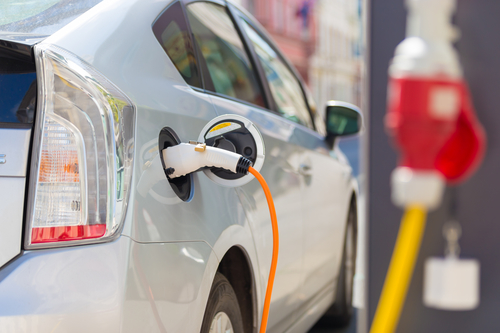 There aren’t enough charging points
There aren’t enough charging points
At the end of 2023, there were around 50,000 electric vehicle charging stations across 20534 locations. By 2025, the number of sockets is set to increase to 80,000. This compares reasonably well with the 8,378 petrol stations currently open across the UK. But as noted above, filling a car with diesel or petrol takes a couple of minutes, not 30 minutes or more and many petrol stations have 4 to 6 pumps or more.
Many people get round this by having their own charging point installed at home. But that’s not really an option for people living in streets of terraced housing where on-street parking means they often have to park their cars some distance from their house.
So as we shift to using more and more electric vehicles, we’ll have to think about how we keep them charged up. The electric vehicle may become the new smartphone, the next device that’s essential for getting us through our day that we have to keep charged up and ready for action.
The need to charge our vehicles could potentially cause problems. What if everyone plugs their car into a charger when they arrive at work at 9am, or when they get home at 6pm? How will the surge in demand be dealt with?
What are the benefits of electric cars?
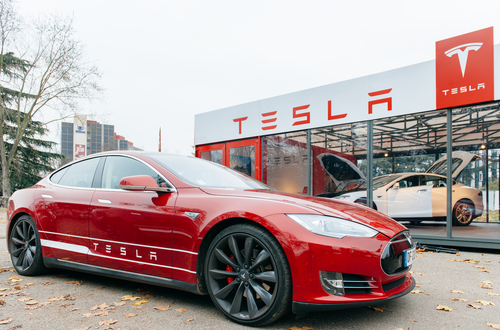 Electric cars are more energy efficient
Electric cars are more energy efficient
An amazing advantage electric cars have over fossil-fuel powered ones is their efficient use of the energy you put into their batteries. An electric car converts between 75 and 95% of its available energy into motion. A fossil fuel car can only convert a maximum of around 30% of the energy stored in its fuel into motion. The rest is lost in heat and friction. So that’s a big win for electric cars!
Electric cars have incredible acceleration
Whilst this might not be strictly considered a benefit, many electric cars are capable of phenomenal acceleration. This is because electric cars produce maximum torque at zero revolutions per minute (rpm) and can continue this pretty much through their rev range. It’s what enables the large, seven-seat Tesla P90D to surge to 60 miles per hour in just 2.6 seconds when it’s set in ‘Ludicrous’ mode! As of the summer of 2022, the Aspark Owl is the fastest-accelerating electric car available to buy, accelerating from 0-60 mph in just 1.69 seconds!
They can be really cool!
Electric cars can look strikingly different. Electric cars like those produced by Tesla and BMW look highly distinctive and they are filled with all kinds of exciting technology. Having driven an electric car, there is something pretty amazing about whizzing down the road with no noise except the wind and the tyres on the road.
The BIG benefit of electric cars
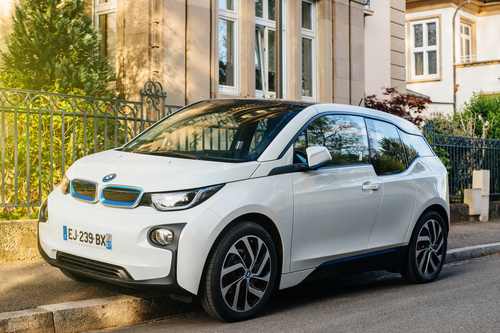 They are greener as soon as they start being driven
They are greener as soon as they start being driven
We have seen above that electric cars actually have a greater environmental impact than fossil-fuel powered ones when they are being made. But that balance is reversed as soon as a car starts being driven. When an electric car is being driven, it emits nothing. In comparison, a fossil fuel powered car emits CO2 and a collection of other gases and particulates.
The UK’s Society of Motor Manufacturers and Traders (SMMT) states that the average CO2 emissions for a new car sold in 2016 was 120.1g/ km, which is equivalent to 193.3g CO2 per mile. So if we discount the fact that most official emissions figures are considerably better than those achieved by drivers in real-life conditions, and if we were to drive 2016’s average new car for 135,000 miles, it would emit over 26 tonnes of CO2 over its lifespan.
Using figures from TNO, the Netherlands Organisation for Applied Scientific Research, the average compact car actually produces an average of 275g CO2 per mile in real-life driving. Using that as our benchmark and travelling the same distance, the car would emit over 37 tonnes of CO2.
The US Environmental Protection Agency (EPA) sets the average annual emissions much higher, at 4.7 tonnes of CO2 per car driving 11,400 miles per year, which equates to 412g CO2 per mile! That typical American car would emit a whopping 55 tonnes of CO2 emissions to travel 135,000 miles!
With any of the above numbers, we need to remember that a further 6 tonnes of emissions are produced in the drilling, refining etc. of the fossil fuels needed to drive a petrol or diesel car for 135,000 miles. That’s because the process of drilling for oil and gas releases around 57g CO2 per kWh of fuel produced.
To drive an electric car 135,000 miles using electricity coming from a mix of 80% fossil fuels and 20% renewables causes CO2 emissions of around 23 tonnes. To travel the same distance when the electric car is receiving its charge from 100% renewable energy will cause just 2 tonnes of emissions.
|
Car type
|
Fuel type
|
Total emissions, 135000 miles
|
|
Electric
|
80% fossil fuel, 20% renewables
|
35-42 tonnes
|
|
Electric
|
100% renewables
|
14-21 tonnes
|
|
‘Real world’ driving, TNO figures
|
Petrol or diesel
|
50-53 tonnes
|
|
US EPA figures
|
Petrol
|
68-71 tonnes
|
So even in a country with an energy infrastructure based around coal and gas-fired power stations, an electric car has much less impact over its lifespan. Given that most public recharging stations in the UK use 100% renewable energy, using an electric car here will create much lower emissions than a fossil fuel-powered car. People who have bought electric cars also tend to use 100% renewable tariffs to charge their vehicles at home, increasing the likelihood of lower emissions.
We can see the future (but it's not here yet!)
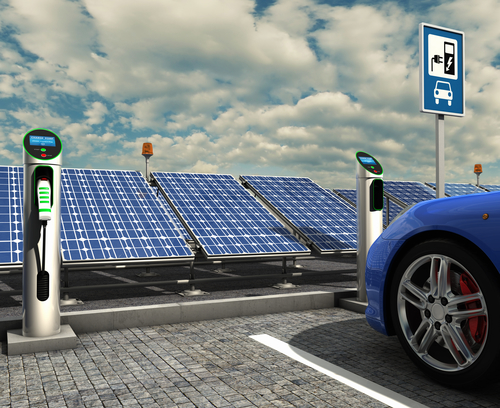
A recent study by the University of Leeds which looked at the costs of owning petrol, diesel or electric cars over four years has shown that electric cars are actually cheaper when running costs are taken into account. In fact, pure electric cars bought in the UK in 2015 worked out to be 10% cheaper across four years than petrol or diesel cars of the same year. This is because electricity is significantly cheaper than petrol or diesel, whilst servicing costs for electric vehicles are minimal, as the engines are much simpler.
The news isn't so good for hybrid cars, which are normally a little more expensive than either petrol or diesel cars. Plug-in hybrids fared worst of all, with higher running costs than any other vehicles.
In the UK, sales of diesel cars have dropped significantly in 2017, with 30% less cars sold as a result of increasing awareness of the pollution caused by diesel engine emissions. Meanwhile, electric car sales increased by 37%. UK electric car sales could overtake diesels by the middle of 2019, according to the UK's Energy and Climate Intelligence Unit. However, there is a long way to go before electric cars become the norm. There are around 32.9 million cars in the UK and by the end of July 2022, some 520,000 of them were pure electric vehicles, along with 405,000 plug-in hybrids.
Steadily improving access to public electric vehicle charging points will likely lead to more motorists choosing to make the switch to electric vehicles in coming years.
The case for switching to electric cars is becoming increasingly convincing. Owning and driving one reduces an individual’s carbon emissions considerably and it’s obvious that in the future, personal transport will be electric. There are barriers to widespread adoption at the moment, but in the next few years, those barriers will get smaller. More manufacturers will begin developing electric and electric-petrol hybrid vehicles, more charging stations (both public and private) will be installed and improvements to battery technology will continue to reduce charging times and increase the range between charges for electric cars. So whilst many of us will be using fossil fuel powered cars for a decade or more to come, increasing numbers of us will be making a switch to an electric vehicle as the 2030s draw nearer.
The end in sight for fossil fuels?
In summer 2017, the UK and France announced that sales of new petrol and diesel engined cars will be banned from 2040 onwards. The UK has already brought this ban forward to 2030. So the end of personal transport powered by the internal combustion engine is already in sight. Chinese-owned carmaker Volvo announced this summer that from 2019 all of its cars will be either electric or petrol hybrid powered. Volvo’s Chinese owners, Geely, plans to sell a million electric cars by 2025.
In 2020, electric cars are sought after with many models to choose from such as the MG5, the Volkswagen ID 3 and the original electric car that broke the mould - the Tesla.
London has introduced the Emissions Surcharge (commonly known as the T-Charge), which means that drivers of most cars built before 2006 now have to pay an additional £12.50 on top of the £15 per day Congestion Charge they already pay to drive in London’s Congestion Charge Zone. Meanwhile, France’s capital city, Paris has banned all vehicles made before 2000 from its streets in a bid to tackle pollution there, and has had a car-free day each year since 2015. It plans to ban all petrol and diesel cars from its streets by 2030.
Credits
Tesla Model S by ifeelstock/depositphotos.com
BMW i3 by ifeelstock/depositphotos.com
Author: Peter Littlewood. Updated September 2022.
 Petrol and diesel are both made from oil - a black, gloopy substance formed from the fossilised remains of animal and plant life that lived and died under our oceans hundreds of millions of years ago. Oil contains compounds of carbon and when it’s burned in a car’s engine, along with being an energy source, it produces carbon dioxide (CO2), the most abundant ‘greenhouse gas’ in our planet’s atmosphere. The concentration of CO2 in our planet’s atmosphere has been increasing rapidly in recent years, and now stands at over 400 parts per million, while in 1800, it was at just below 283 ppm. The increased level of CO2 in our atmosphere, brought about by increased burning of fossil fuels, is now agreed by almost all climate scientists to be the cause of rapidly accelerating climate change and rising global average temperatures.
Petrol and diesel are both made from oil - a black, gloopy substance formed from the fossilised remains of animal and plant life that lived and died under our oceans hundreds of millions of years ago. Oil contains compounds of carbon and when it’s burned in a car’s engine, along with being an energy source, it produces carbon dioxide (CO2), the most abundant ‘greenhouse gas’ in our planet’s atmosphere. The concentration of CO2 in our planet’s atmosphere has been increasing rapidly in recent years, and now stands at over 400 parts per million, while in 1800, it was at just below 283 ppm. The increased level of CO2 in our atmosphere, brought about by increased burning of fossil fuels, is now agreed by almost all climate scientists to be the cause of rapidly accelerating climate change and rising global average temperatures.
 Their batteries need rare metals
Their batteries need rare metals There aren’t enough charging points
There aren’t enough charging points Electric cars are more energy efficient
Electric cars are more energy efficient They are greener as soon as they start being driven
They are greener as soon as they start being driven
